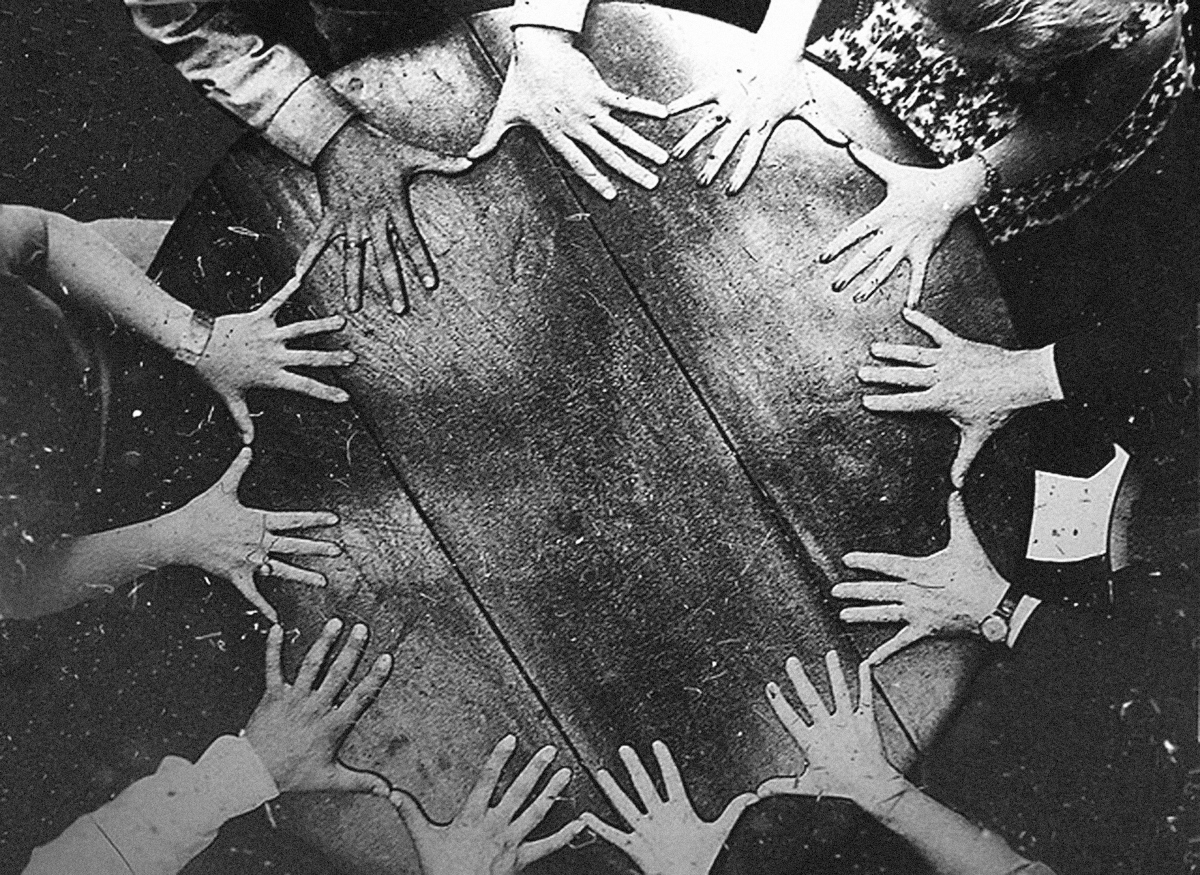Models to Magic
Using the vessel and paraphernalia of business to manifest the worlds we want.
An elemental question for Ibex is how to act in the wider arena of business without succumbing to its mechanisms — the imperatives of productivity, growth and market competition — or else becoming imperceptible — not recognised as “business” at all. We approach this dilemma side-on, using a wild card, “magic”, adopted for what it can activate, rather than any singular, consistent meaning. In invoking magic, we reference a span of practices from the spectacle of stage magic to the ceremonial happenings of ritual and the occult.

Witchcraft, ceremonial magick, and chaos magick engage with the unknown through rituals, such as invocation, divination, or spellcasting. Some magick rituals are meant to petition or manifest higher powers capable of manipulating reality — gods, spirits, djinns, natural forces, and other drivers of change. Such practices could be understood as pre-modern equivalents of corporate lobbying and strategic foresight.

Stage magic takes a more vernacular approach. While facilitated by the skills and expertise of the magician, its conjuring power is distributed across an array of supporting devices: staging, props, routines, assistants and the expectations of the crowd. It can also be a DIY activity, a repertoire of tricks that can be shared. Emulsification is one example of vernacular magic you can try, experienced in the form of an open source cola recipe.
Forming our own Business Institute is a work of declaration or invocation, and at the same time an instrumental manoeuvre: naming something in order to make it true. If we act in the guise of an Institute, our activities appear more legible to those operating in the larger business arena than the same people doing the same things as an art collective. At the same time, this act of naming messes with the structure of things. In the UK, “Institute” is a protected term that cannot be used in a company name without specific authorisation. As set out in the Company, Limited Liability Partnership and Business Names (Sensitive Words and Expressions) Regulations 2014, the term “Institute” requires approval by the UK Secretary of State to be included in a company name “to ensure a name does not mislead or harm the public” by suggesting a “business pre-eminence, a particular status”. In Croatia, one must be an Institute for a certain kind of research to be recognised. Research is listed in the Croatian National Classification of Economic Activities (NKD) for Business Entities. Yet according to a Commercial Court judge, one must register as an Institute to conduct any type of research as a business activity. For example, the statutes of incorporation for FoAM d.o.o. (a limited company) were initially rejected because our business codes included “Research and Experimental Development” (M 72.19. and M 72.20.). The judge informed us that we can either remove the codes and register the company, or incorporate the company as a research institute, which means applying to different authority, a process that could take years. This decision might have been at the discretion of the judge. More research required. The designation of an Institute has material effects, through codes and systems that circumscribe what is possible for a business to do, from accessing funding to forming strategic partnerships, and validating research outcomes. Accordingly, how to set ourselves up as an Institute across these dappled bureaucratic and regulatory dimensions is a fundamental component of Ibex research.

To stand against the force fields of business orthodoxy, both at a formal, regulatory level but also at a visceral one — how business makes us think and feel — we need some radical tricks, acts, and altered forms of confidence. The reason we call forth magic is for the excess or asymmetric powers it can conjure: powers that go beyond the workaday constructs of models and templates in which business knowledge is typically conveyed. This applies to social and “ethical” enterprise — evidenced in a proliferation of “alternative” business plans, toolkits, and organisational forms — as much as to the business mainstream Rather than these rational, scalable propositions, the interest in Ibex is for a wilder, exploratory, experimental take on how business could be imagined and lived. See also: Dark Arts, Grey Areas and Other Contingencies. In terms of magic objects, we take up the materials and devices of day-to-day trading as our talisman of agency and influence. Currencies and bank accounts become ceremonial vessels, legal entities a space to test out practical and transcendent transformations, money is repurposed as an experimental medium.
In these times of polycrises, while the forces of change are wreaking uncommon disruptions of old economic orders, it's time for new tricks — using the vessel and the paraphernalia of business to manifest what we want the world to become.


Further reading & references.